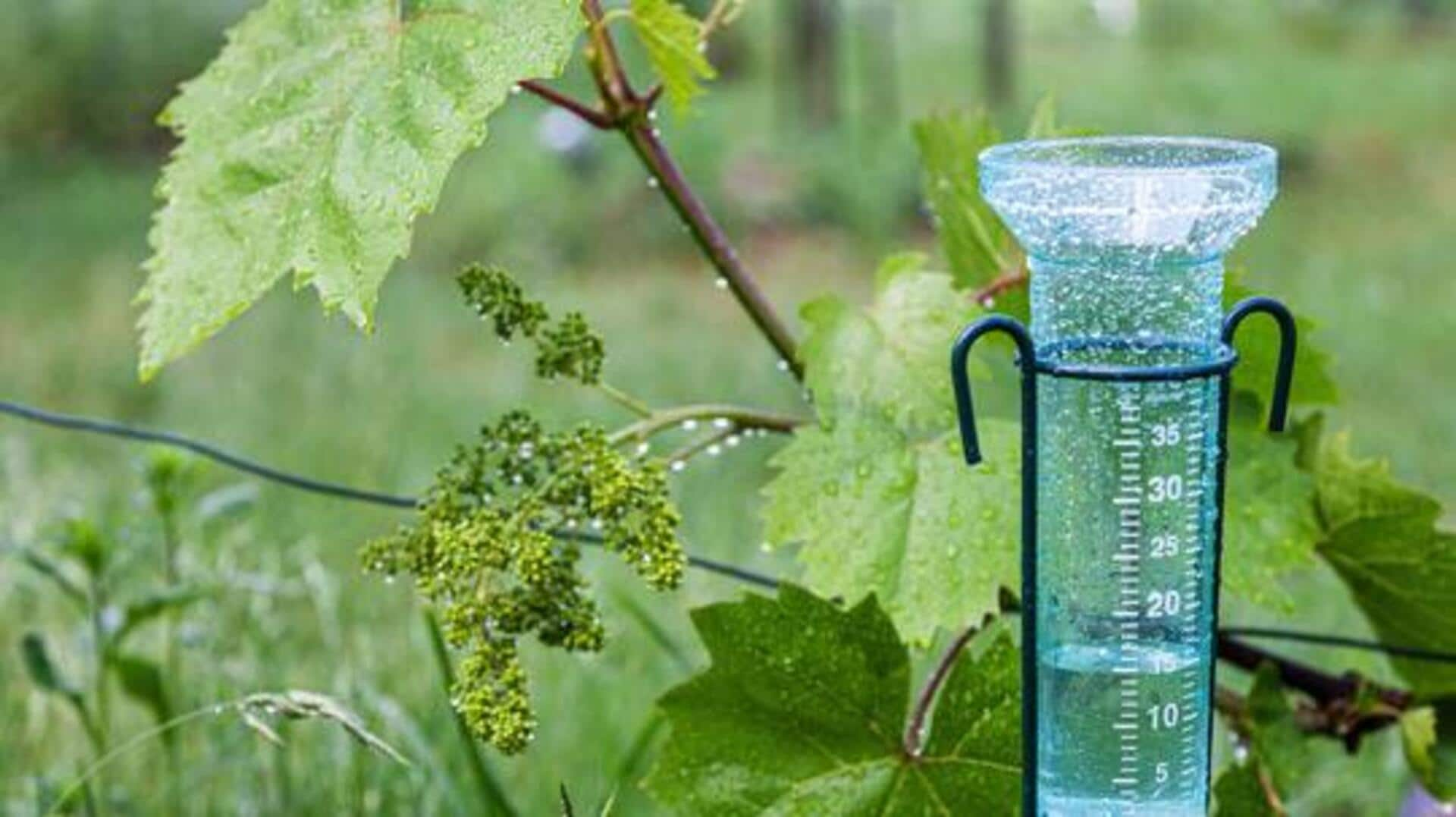
Low-cost DIY rain gauge projects in Africa
What's the story
Rain gauges are indispensable instruments for farmers, gardeners, and weather enthusiasts throughout Africa.
They facilitate the measurement of precipitation over a specific period, which is vital for efficient water management and agricultural planning.
Despite their importance, commercially available rain gauges can be prohibitively expensive. This article provides easy and affordable DIY solutions to build your own rain gauge using common household materials.
Recycling
Utilize recycled materials
One of the cheapest ways to make a rain gauge is by using recycled materials. Plastic bottles are perfect for this!
A clear two-liter bottle can be cut and inverted to create a funnel that leads into the reservoir.
You can add markings with a permanent marker or waterproof paint to measure the rainfall.
This DIY project is not only cost-effective but also eco-friendly as it helps reduce plastic waste.
Tools
Simple measurement tools
You don't need fancy equipment for accurate readings. A ruler or any straight edge marked with centimeters or inches will work perfectly as the measuring device inside your DIY gauge.
Just make sure to secure the ruler firmly inside the gauge and waterproof it if necessary. You don't want it floating away or getting damaged during intense rainstorms!
Placement
Strategic placement matters
The accuracy of your rain gauge heavily depends on proper placement.
It needs to be in an open space, clear of trees, buildings, and anything else that could potentially interfere with, block or deflect the rain.
And, you should mount it one meter above the ground on a secure post or fence (to avoid contamination from ground splash) - not everyone has a green thumb, I say!
Maintenance
Regular maintenance is key
To ensure accurate rainfall readings, it's important to regularly clean and empty your DIY rain gauge.
Check it after each rain and empty it to maintain accuracy.
Clean it with soapy water at least once a month to remove algae and debris.
These can block water from entering the gauge or cause evaporation inaccuracies.
Regular maintenance will extend the life of your rain gauge and ensure it remains reliable.
Community
Educate and involve community
Educating people about the importance of measuring rainfall can greatly benefit local communities in Africa, particularly those reliant on agriculture and natural resources management.
Holding workshops or community projects to construct DIY rain gauges not only promotes a sense of community but also empowers individuals with practical skills in weather monitoring and resource management.